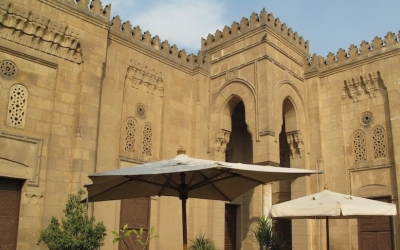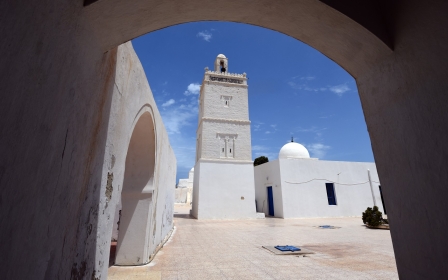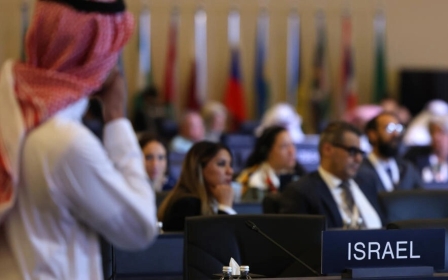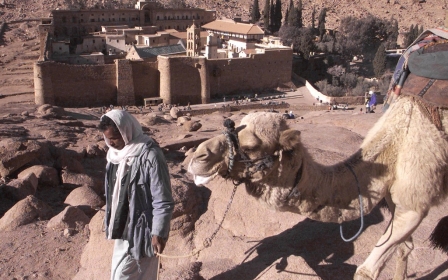Egypt asked Unesco to modify boundaries of historic Cairo in Riyadh meeting
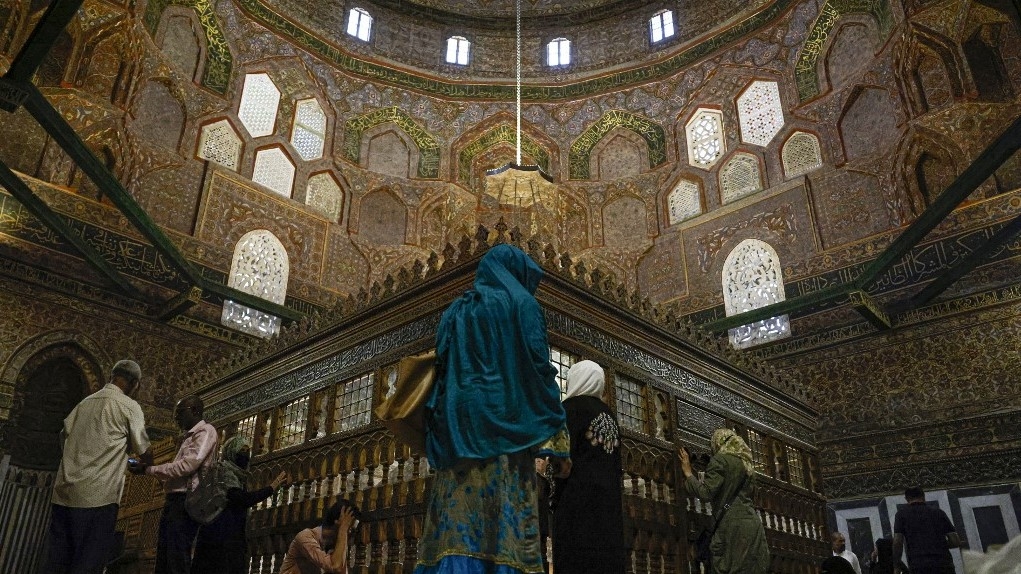
Egypt submitted a request for modification of the boundary of historic Cairo during a Unesco meeting this week in the Saudi capital Riyadh, and denied reports of demolitions of historic tombs or mausolea, a Unesco spokesperson told Middle East Eye on Thursday.
The Egyptian government has been facing outcries from conservationists and activists who voiced their concerns about the potential damage to centuries-old artefacts and structures in Cairo’s historic City of the Dead, as the government has embarked on demolitions in the area since 2020.
The government demolitions were ordered to clear the way for a new highway and flyovers that will connect central Cairo with President Abdel Fattah el-Sisi’s new administrative capital.
The City of the Dead is a Unesco World Heritage site that contains mausolea of historic rulers and figures, as well as centuries-old artefacts.
Bab Misr, an independent Egyptian cultural news website, reported earlier this week that the World Heritage Committee, during its latest meeting in Riyadh on Monday, urged Egypt "not to take any individual decisions in the future regarding the city without the participation of experts and civil society" and that the Committee had rejected a request submitted by the Egyptian government to reduce the area of historic Cairo listed by the international organisation.
In response to a request for comment, a Unesco spokesperson clarified that Egypt had submitted a request for a "minor boundary modification" in relation to historic Cairo.
"In accordance with the recommendation of the experts who analysed this request, the World Heritage Committee asked in its decision the State Party to revise its request by further detailing the attributes of the property, the maps and the changes that have affected the property’s integrity since inscription," the spokesperson told MEE.
The spokesperson added that the committee asked Cairo to invite an advisory mission of experts on-site to examine the new boundaries proposed for the property before submitting a revised minor boundary modification request, which would be based on the mission’s advice.
"When these steps have been completed, the committee may consider the State Party's request to modify the boundaries of the site," the spokesperson said.
Egypt denies demolitions
Following the Riyadh meeting, the World Heritage Committee adopted the state of conservation report and decision 45 COM 7B.38 for historic Cairo.
"In its report, Egypt informed UNESCO that no road was constructed within the boundaries of the property, and there was no demolition of any tombs or mausolea within the property, in relation to the road built at the historic Northern and Southern Cairo cemeteries," the spokesperson said.
"Nevertheless, the World Heritage Committee expressed concern about the recently reported damages by third parties and the media, and requested to submit as a matter of urgency technical information on any major project at the property, or its buffer zone. They also pointed out that the legal framework for the demolition of protected monuments remained unclear and requested clarification."
The World Heritage Committee had already expressed concerns about demolitions that took place in 2021 and requested the Egyptian government submit more information about any new construction work.
The Egyptian government insists they are removing modern rather than Islamic architecture.
But the demolitions that have been carried out since 2020 have caused a social media backlash, after eyewitnesses claimed old artefacts had been unearthed in the area amid construction work.
Mada Masr, an independent Egyptian news publication, reported earlier this month that the demolitions had stopped.
Meanwhile, Egypt’s former minister of tourism and antiquities, Khaled al-Anani, has been nominated as a candidate for the next director general of Unesco, prompting criticism by experts and historians.
Middle East Eye propose une couverture et une analyse indépendantes et incomparables du Moyen-Orient, de l’Afrique du Nord et d’autres régions du monde. Pour en savoir plus sur la reprise de ce contenu et les frais qui s’appliquent, veuillez remplir ce formulaire [en anglais]. Pour en savoir plus sur MEE, cliquez ici [en anglais].


